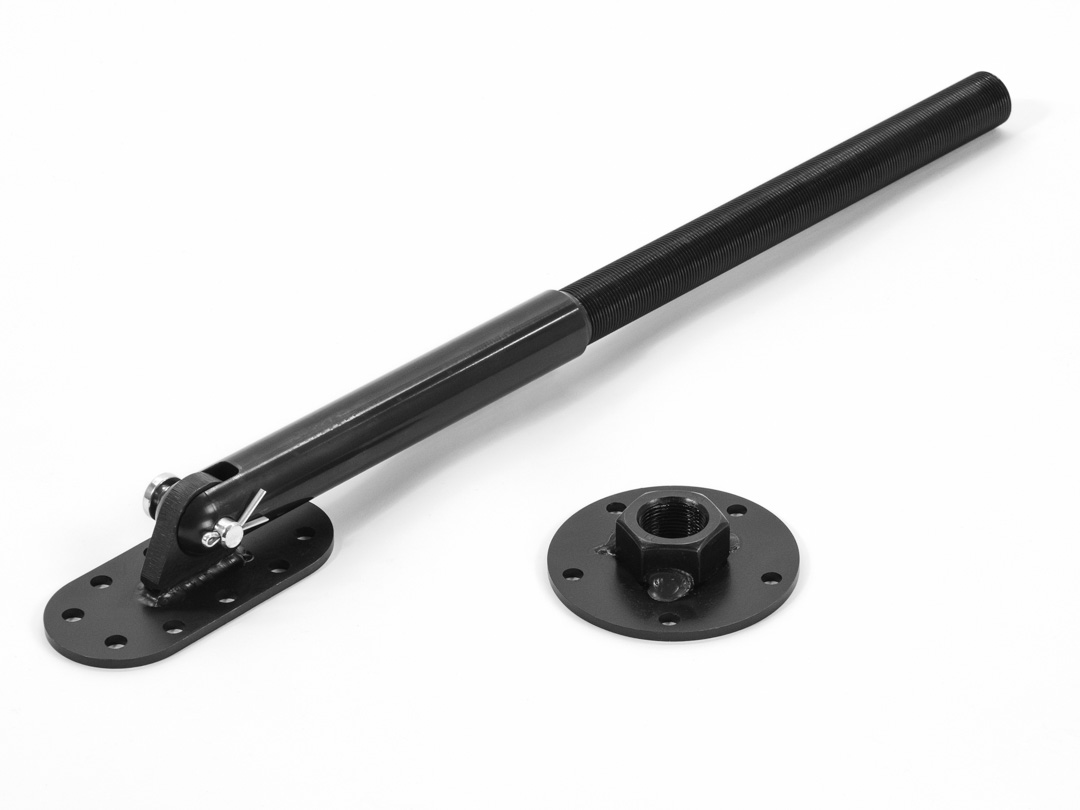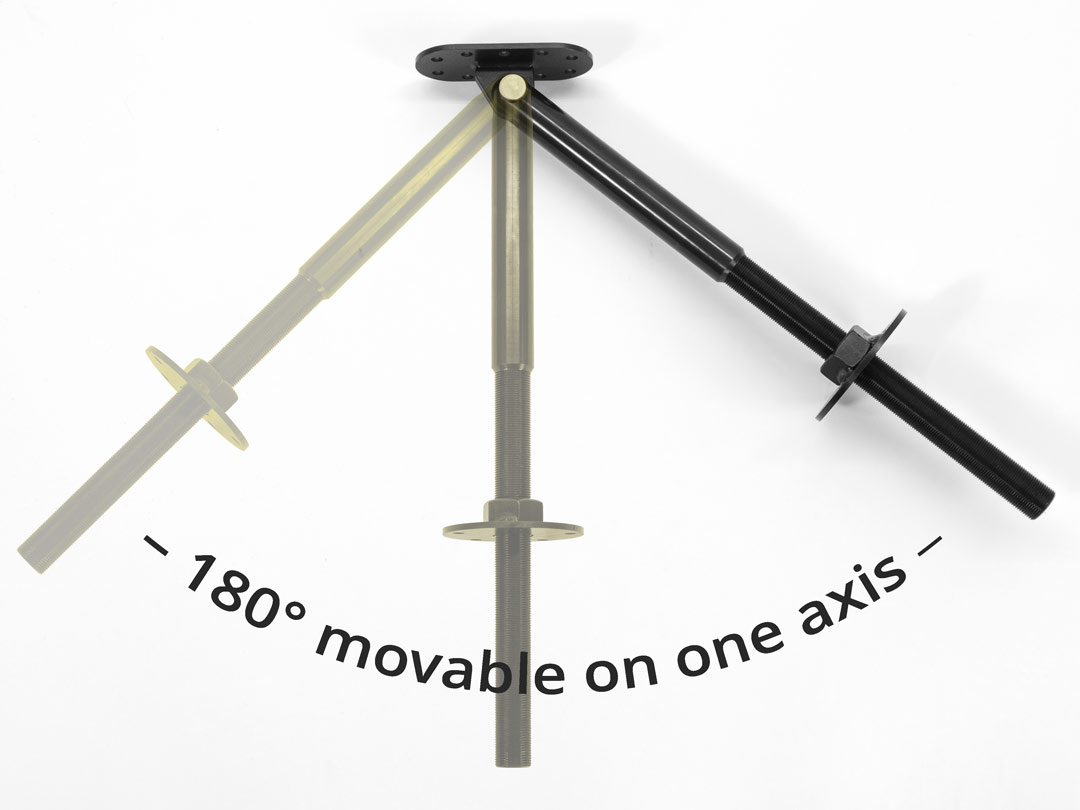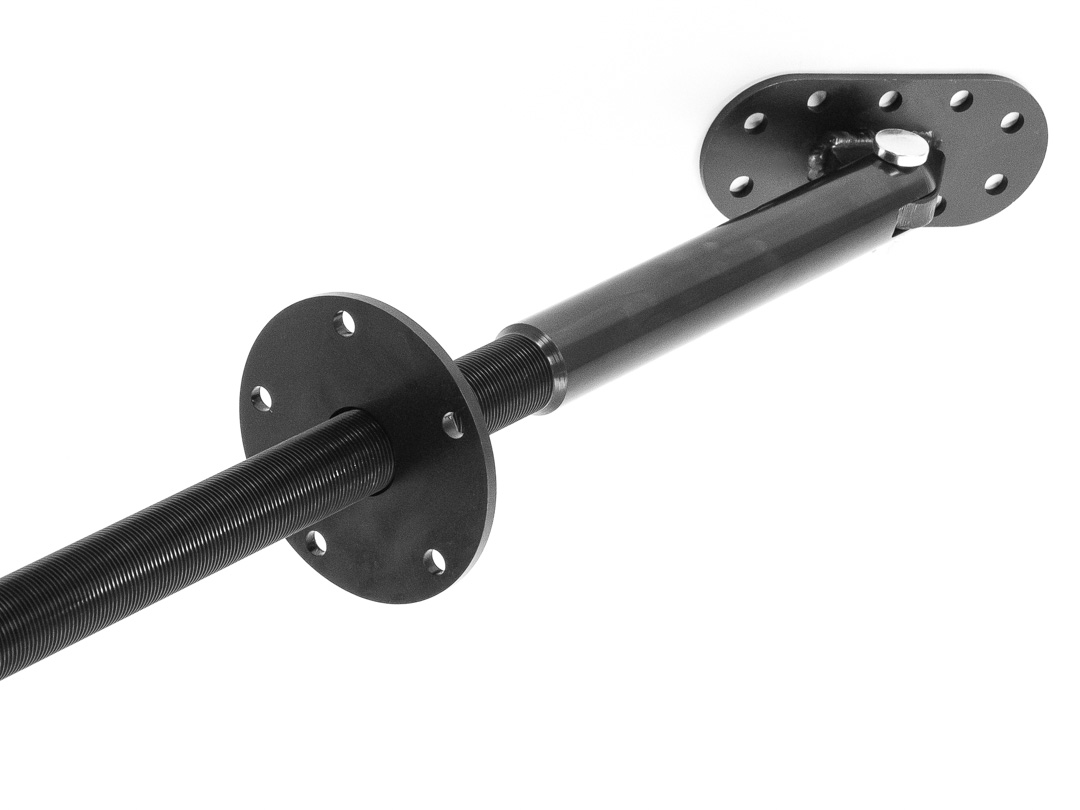STRUT SUPPORT PLATFORM
Connection Strut-Platform
The Strut Support Platform makes attaching struts easier than ever! You save yourself the complicated angle cutting and the exact cutting to length of the wooden support and can effortlessly screw your beams to the construction.
112,00 €
incl. VAT plus shipping
In stock
In stock
| ✓ Made in Germany | ✓ 5 Years Warranty | ✓ 30 Days Return |
The simple solution for strut connections on the platform
The Strut Support Platform is the counterpart to the Strut Support Safety and Strut Support GTS. It saves you the complicated angle cuts on your strut, instead you can roughly cut the beams to 90°, install them freely and even readjust them if the platform settles a little! The whole thing looks professional and you save a lot of time and energy during assembly. Of course you can also use elegant thin steel tubes instead of wooden struts! A PDF on the use of tubular steel struts can be found here.
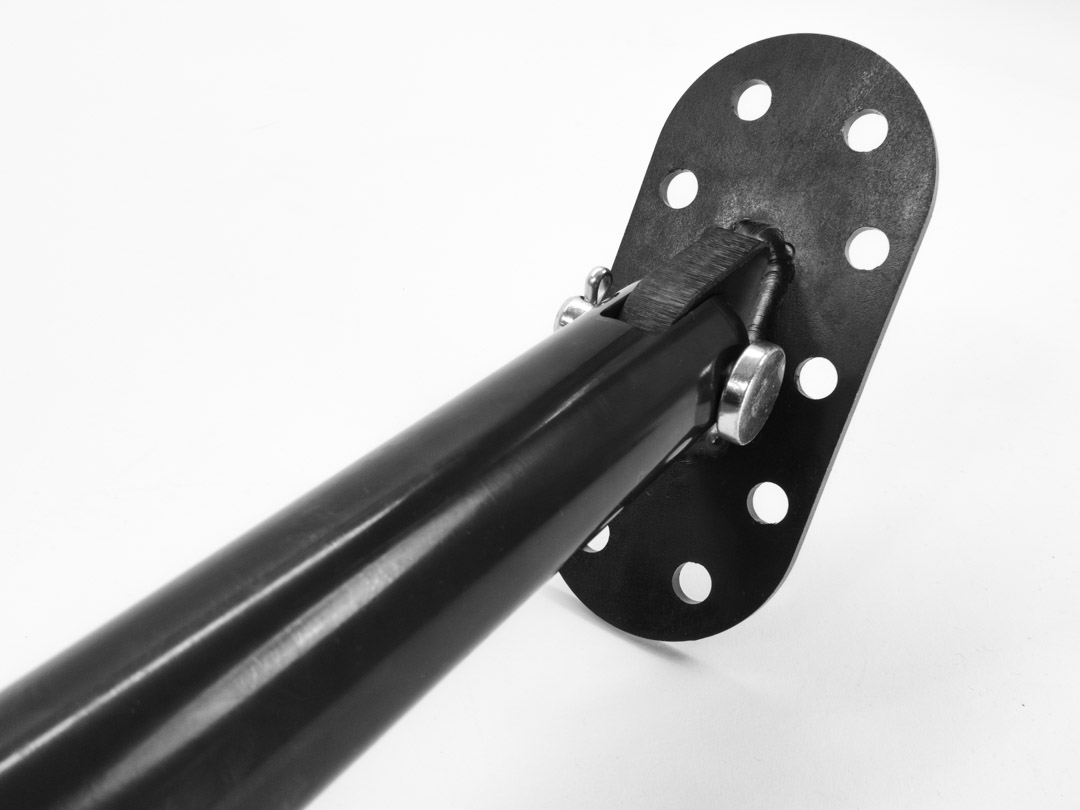
Secure and stable
For heavy loads
The new 4 cm Ring and the more solid shaft ø 28 mm make the Strut Support GTS a reliable support for heavily loaded struts! The support can easily take 1000 kg (2200 lbs) pressure load, but make sure that the strut and the GTS in the tree are also designed for this.
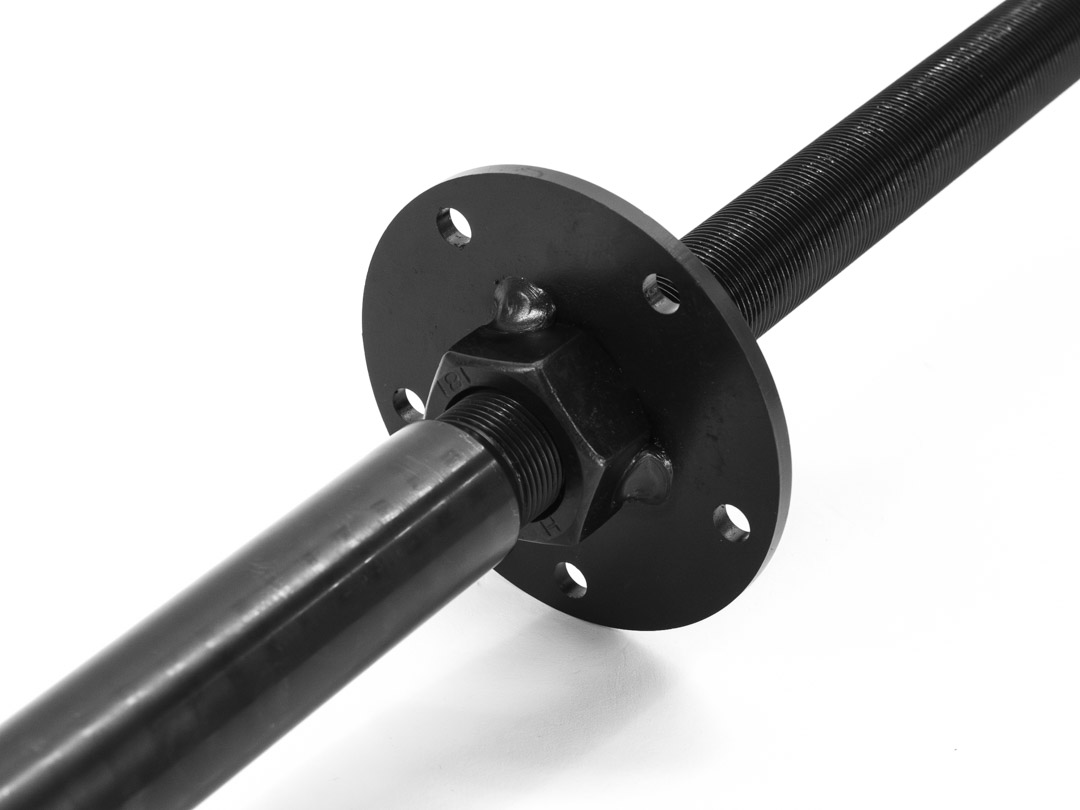
Adjustable Plate
Firmly clamped
The solution with the height-adjustable plate has three advantages: 1. you save complicated angle cuts and can easily adjust the length. 2. you space your support beam so that the tree has enough room to bounce around the thin steel strut, while your cutting surface remains dry. 3. you can clamp the strut tightly and adjust it if your platform sinks.
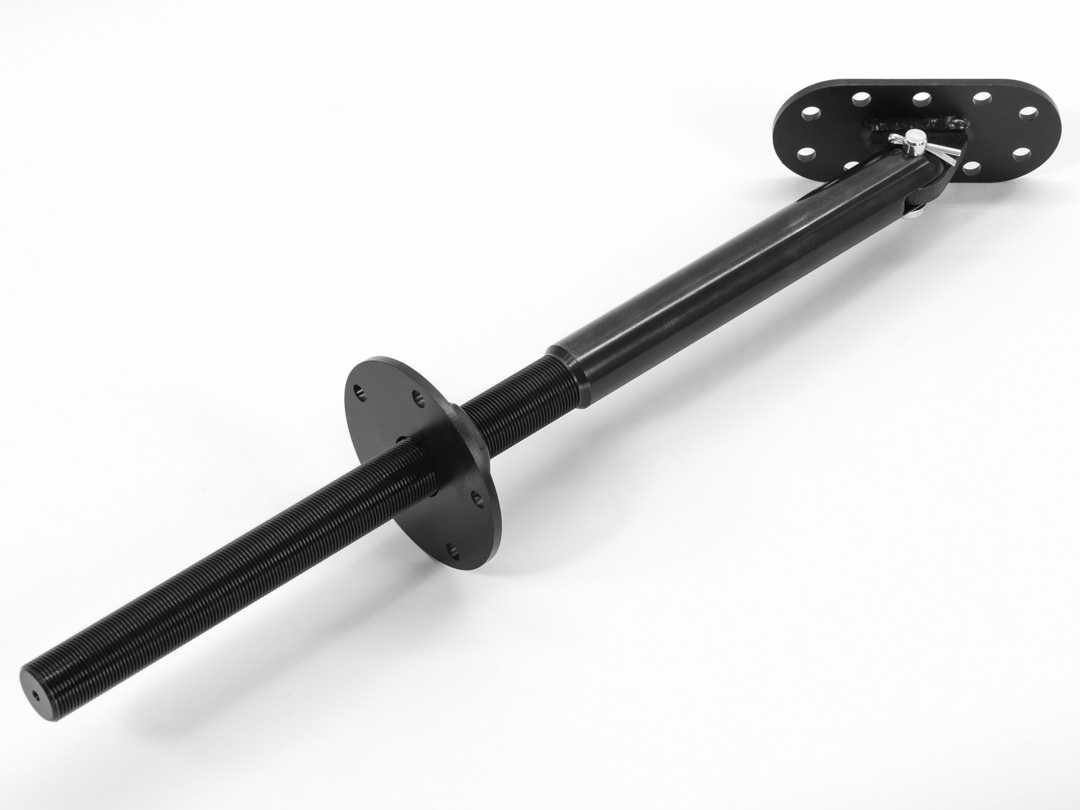
Filligrano
Steel Tube Struts
Of course you can also use filigree steel tubes instead of the thick wooden struts. To do this, simply remove the plate from the nut and push a steel tube onto the fine thread of the strut holder. You can then tighten the steel tube with the nuts.
A PDF on the use of steel tube struts can be found here.
What is delivered?
1 × Strut Support Platform
Product Details
- Strut made of special steel alloy (not weldable!)
- Height-adjustable plate for clamping and readjusting the strut
- Perforated plate for force-fit mounting on wooden construction
Technical Data
Strut:
- Total length of strut: 450 mm (17,7 in); ø 28 mm
- Length of thread M24: 250 mm (9,84 in)
- Plate: ø 90 mm (3,54 in)
- Height adjustable with nut M24 (SW 36)
- 5 holes ø 7.5 mm, for fixing the wooden strut
Platform metal sheet:
- DIN steel St52, weldable
- 120 × 55 mm (4,7 × 2,2 in); t = 3.5 mm
- 10 holes on platform plate ø 8.0 mm
- Gesamtgewicht: 2430 g
- Artikel-Nr.: TTS3005
- HS-Code (Zolltarif): 73089098
Assembly
- Cut the wooden strut to the desired length: 90°.
- Pre-drill the bottom centre of the end grain with the Auger-Bit ø 24 mm (250 mm deep = 10 in) and sink the strut with the plate completely into it.
- Fit everything together and connect it firmly to the platform.
- Screw the plate tight … as soon as the strut is firmly clamped, screw the plate tight with ø 6 × 100 mm stainless steel wood screws.
Note:
- The strut / GTS may sag a little during the first load – it is best to screw the plate and strut together only after the platform is finally loaded.
- The strut may only be loaded under pressure.
- The upper connection between strut and platform must be bombproof (angle plates!).
“Montageanleitungen” — TheTreehouse.Shop
Montage Video
“Versandservice” — TheTreehouse.Shop
“Hardware Info” — TheTreehouse.Shop
Frequently Asked Questions
How thick must the wooden beam be?
Since it is purely an axial compression load, the cross-section of the squared timber can be square or round. The plate measures ø 90 mm, so your beam should be at least 9 cm thick (3,6 in). The higher the load and the longer the strut, the thicker the beam must be. For a maximum length of 3 m (120 in), the beam should be a maximum of 12 cm thick (4,7 in).
Can I screw additional beams to my main strut?
From a static point of view, pure compression struts must not be subjected to additional lateral loads, as they could otherwise buckle or the connections could buckle laterally. If branching beams should nevertheless be attached to the main strut, it is best to arrange them symmetrically so that their effect balances each other out.


